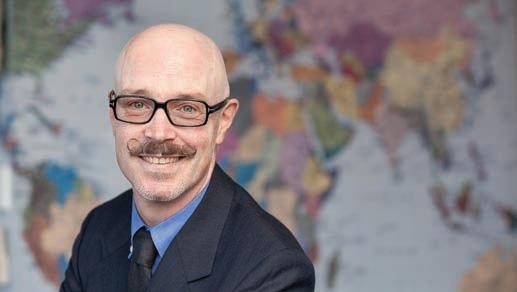
3 minute read
Public ‘mandate’ for health reforms – expert view
Professor Robin Gauld Professor Peter Crampton

Professor Peter Crampton, a public health researcher in Otago University’s Ko -hatu, Centre for Hauora Ma -ori, was a member of the Health and Disability System Review panel which suggested a more tepid set of changes. Senior Communications Advisor Eileen Goodwin spoke to Professor Crampton, and also Professor Robin Gauld.
Professor Crampton is delighted the Government has gone further than what the panel recommended. “I’m excited by the possibilities that arise out of the Minister’s decision. I see huge potential here. I think this is the most remarkable point in time in my professional life from a health systems point of view,” he tells The Specialist. He says he had agreed with the panel’s consensus to recommend retaining, but reducing the number of, DHBs. The vexed question of striking a balance between centralisation and decentralisation led the panel to that view, but, essentially, it’s an “imponderable”, he says. He believes there is a mandate from both the public and the sector for wholesale change. He is enthusiastic about the development of a Ma -ori Health Authority. “I am a very strong supporter of universalist principles. However, within our universalist system we need to take heed of the huge amount of research that shows Ma -ori needs, and other ethnicities, are not well catered for with a culturally monolithic approach.” The right to commission health care tailored for their people will, he believes, shift the dial on Ma -ori health outcomes. It is not a “magic bullet” – he does not believe in those – but is an essential step within the framework of Te Tiriti o Waitangi. “Tino rangatiratanga is an essential prerequisite for health for Ma -ori.” He believes that at some point in future the Pacific Island community may acquire its own mechanism to commission health services. Asked about cancer services, he says the evidence shows that after diagnosis, Ma -ori sometimes face longer wait times and poorer outcomes than Pa -keha -. This is evidence that the system is sometimes “blind” to the needs of some patients – though he points out this is not the intention of the treating clinicians and managers. Professor Crampton, a former dean of Otago Medical School, says the new Health NZ will be able to deliver proper workforce planning. Health and education have never worked together closely, and that has been a major shortcoming, he says. Professor Robin Gauld, co-director of Otago University’s Centre for Health Systems and Technology, says the DHB system has failed “miserably” at putting patients at the centre of the system. The reforms will sweep away the DHBs and their tendency to become mired in local game-playing and petty politics. “You would get a DHB chief and a PHO chief who just don’t see eye-to-eye, which is unacceptable.” “This is about patients and communities, and to have personality politics is absolutely unacceptable.” While an enthusiastic proponent of scrapping the DHBs, Professor Gauld also believes the reforms will only go part of the way towards improving health outcomes. He is concerned too many resources are tied up in the private health care system, which cannot be accessed by all patients. He says a possible regulatory reform requiring the private system to support the public system at times of need should be examined. A social insurance model should probably be looked at too, he says. “You would get a DHB chief and a PHO chief who just don’t see eye-to-eye, which is unacceptable. This is about patients and communities, and to have personality politics is absolutely unacceptable.” He hopes the new Ma -ori Health Authority – an “exciting, progressive, and overdue” development – will raise some of these “thorny questions” he’s been asking about the system. He says a similar Ma -ori health body was mooted in the early 1990s but failed to get the support of the then National government. He says Health NZ itself is something of a throwback to the Health Funding Authority of the late 1990s. This worked rather well at the time and had been a welcome change from the market-driven health reform of the late 1980s and early 1990s. It was scrapped in favour of locally elected DHBs in 2000. Even after being around for 20 years, the elected boards had not found ways to operate effectively at a governance level and the public was disengaged from them, he said.







